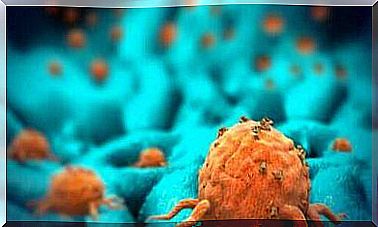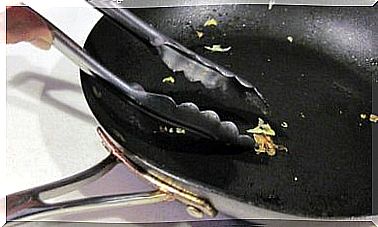Propolis In Oral Care
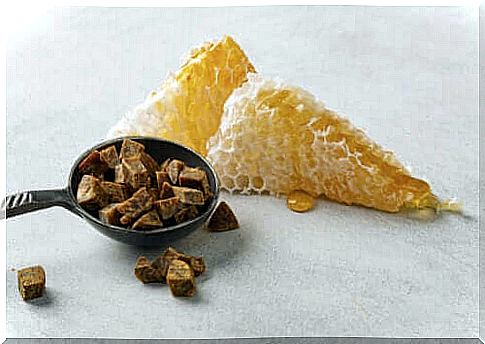
Propolis is a natural ingredient supporting oral care. Thanks to its interesting composition containing flavonoids, phenolic acids and esters, it has been used for years as a protective agent for teeth and gums.
According to the article published in the Evidence-Based Complementary and Alternative Medicine magazine , formulas based on this ingredient have many applications in dentistry. Their bactericidal, antiviral, analgesic and anti-inflammatory properties are particularly used. Find out more!
Advantages of propolis and its influence on oral health
Propolis is also known as “bee glue”. This is the material used by bees to glue the walls of the hive together and protect them from external factors causing pollution.
It is a resin-like, yellow-brown liquid made of substances obtained from the pulp of wood and other plant sources in combination with the secretion of bees.
Since antiquity, propolis has been valued for its medical applications and the richness of nutrients and bioactive compounds. These contribute to disease prevention and health protection. According to the publication of the Nutrients magazine , propolis contains:
- Phenolic acids.
- Flavonoids.
- Esters.
- Diterpenes.
- Sesquiterpenes.
- Lignans.
- Aromatic aldehydes.
- Alcohols.
- Amino acids.
- Fatty acids.
- Vitamins and minerals.
Propolis is used in many medical procedures, but we will focus on its role in oral care. Did you know that it helps prevent cavities and periodontitis? Find out what the research says.
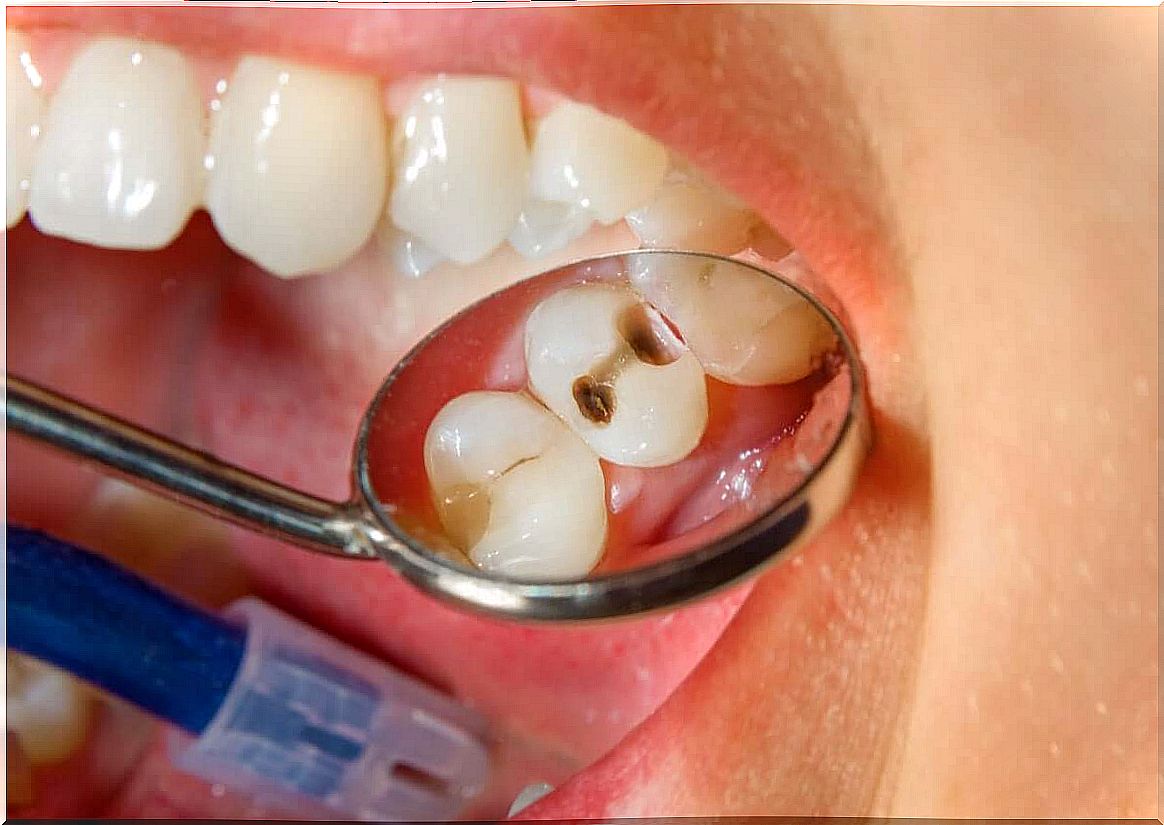
Propolis in the prevention of caries
One of the main applications of propolis is caries prophylaxis. A study published in the Ethiopian Journal of Health Sciences reported that this ingredient has antibacterial properties and destroys pathogens such as Streptococcus spp. , Streptococcus mutans and Streptococcus sobrinus.
These bacteria are responsible for the appearance of tooth decay and other oral diseases. Propolis blocks their enzymatic activity and cell division, which prevents them from multiplying. What’s more, thanks to the content of flavonoids and organic acids, it also destroys other bacteria in the mouth that can cause infections.
Propolis for parodontosis
Antifungal and antibacterial properties are also used in the prevention of periodontitis. An article published in the Journal of Dental Research, Dental Clinics, Dental Prospects reports that propolis extract kills the following bacteria that cause periodontitis:
- Capnocytophaga gingivalis.
- Prevotella intermedia.
- Fusobacterium neucleatum.
- Porphyromonas gingivalis.
At the same time, it prevents bone loss in gum disease and blocks the growth of microorganisms such as Staphylococcus aureus, Escherichia coli and Candida albicans that cause infections.
Propolis as an anti-inflammatory agent
Flavonoids and caffeic acid contained in propolis have a strong anti-inflammatory effect and are useful in the prevention of oral diseases such as tonsillitis.
A study published in the Journal of Dentomaxillofacial Science showed that propolis accelerates tissue regeneration thanks to its anti-inflammatory effects.
- The natural remedy can be made on the basis of 30 drops of propolis extract in combination with water (100 milliliters). The fluid should be used as a rinse 2 to 3 times a day. In the case of chronic gingivitis, it is best to prepare it with cold water.
Antiviral action of propolis
Let’s not forget that viruses also attack the oral cavity. Propolis is our ally in the fight against them – the extract blocks their action. Antiviral properties are a matter of the content of polyphenols, flavonoids and phenyl carboxylic acids.
According to the publication of the Phytotherapy Research magazine, water and alcohol-based propolis extracts have a strong antiviral effect and are especially effective against the herpes virus, which causes mouth ulcers and stomatitis.
Is propolis safe?
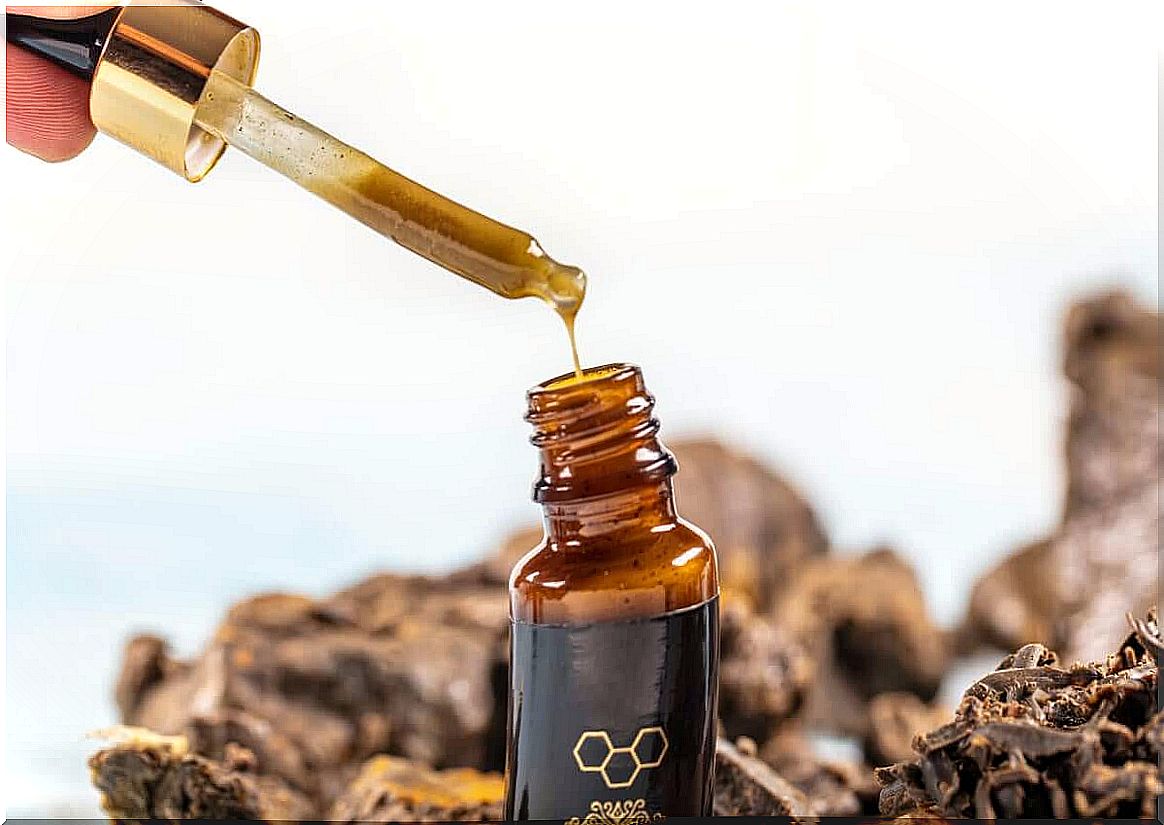
Propolis is safe for most healthy adults and comes with no risks when used appropriately. There have been reports of allergies as manifested by rashes. It can also irritate the oral mucosa.
Propolis is not recommended for pregnant women, although there is no scientific literature on this subject. Moreover, it is cautioned against possible interactions of this substance with antiviral, anti-cancer drugs, antibiotics and anti-inflammatory agents.
Allergy symptoms are as follows:
- Eczema.
- Inflammation of the red lips.
- Pain in the mouth.
- Swelling of the lips.
- Flaking lips.
More research is needed to establish safe uses of propolis in dentistry and medicine. While the results so far are promising, they are not enough to make this ingredient a first-choice treatment.
Propolis: your oral care ally
It’s not a magic remedy for mouth infections, but it does support your oral care. On its basis, pastes, rinses, lotions, lotions and other agents are produced.
It should be used in moderation and not considered a medicine. It is also recommended to follow the manufacturer’s recommendations. In the case of oral diseases, it is best to go to the dentist.
